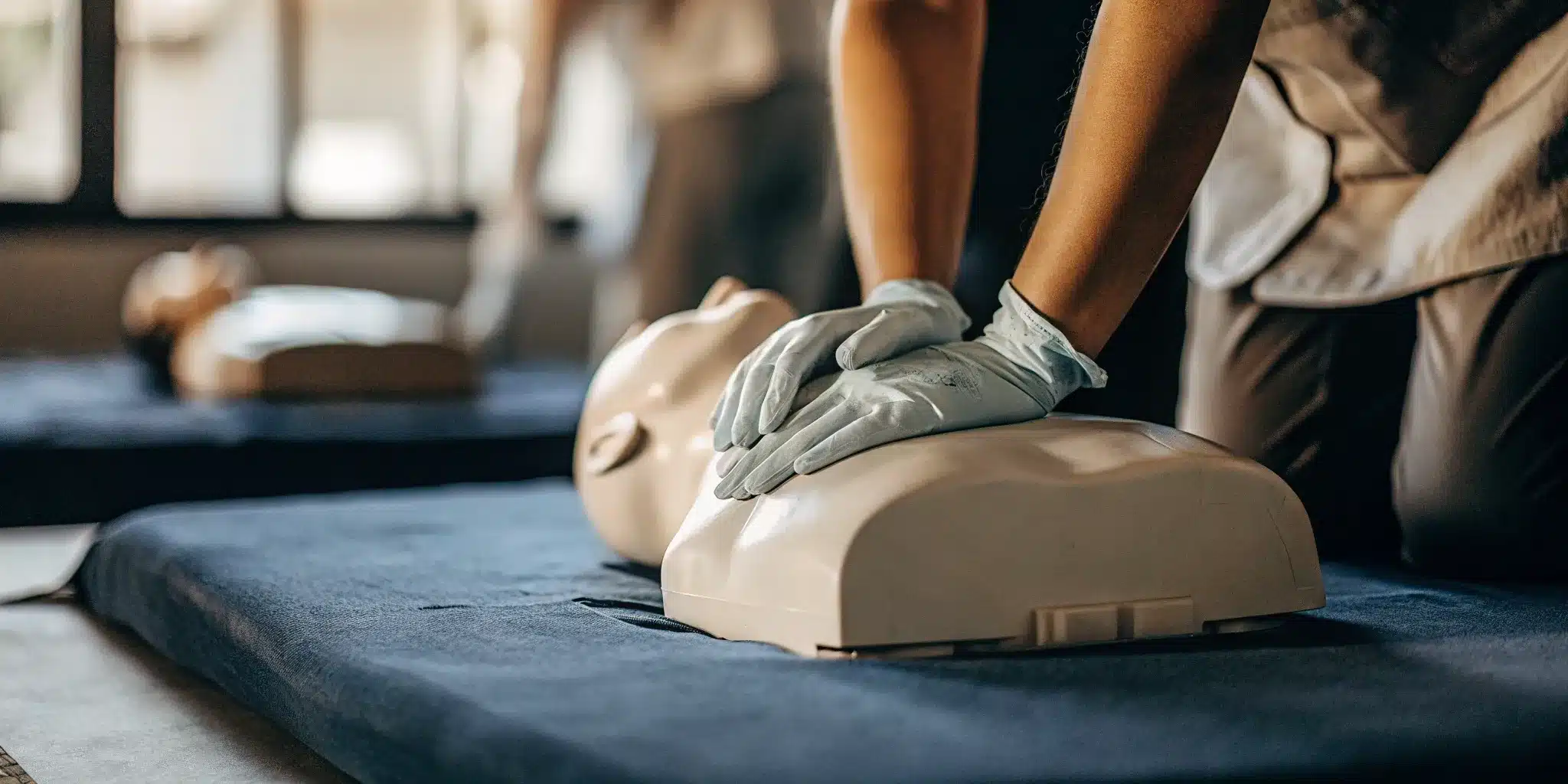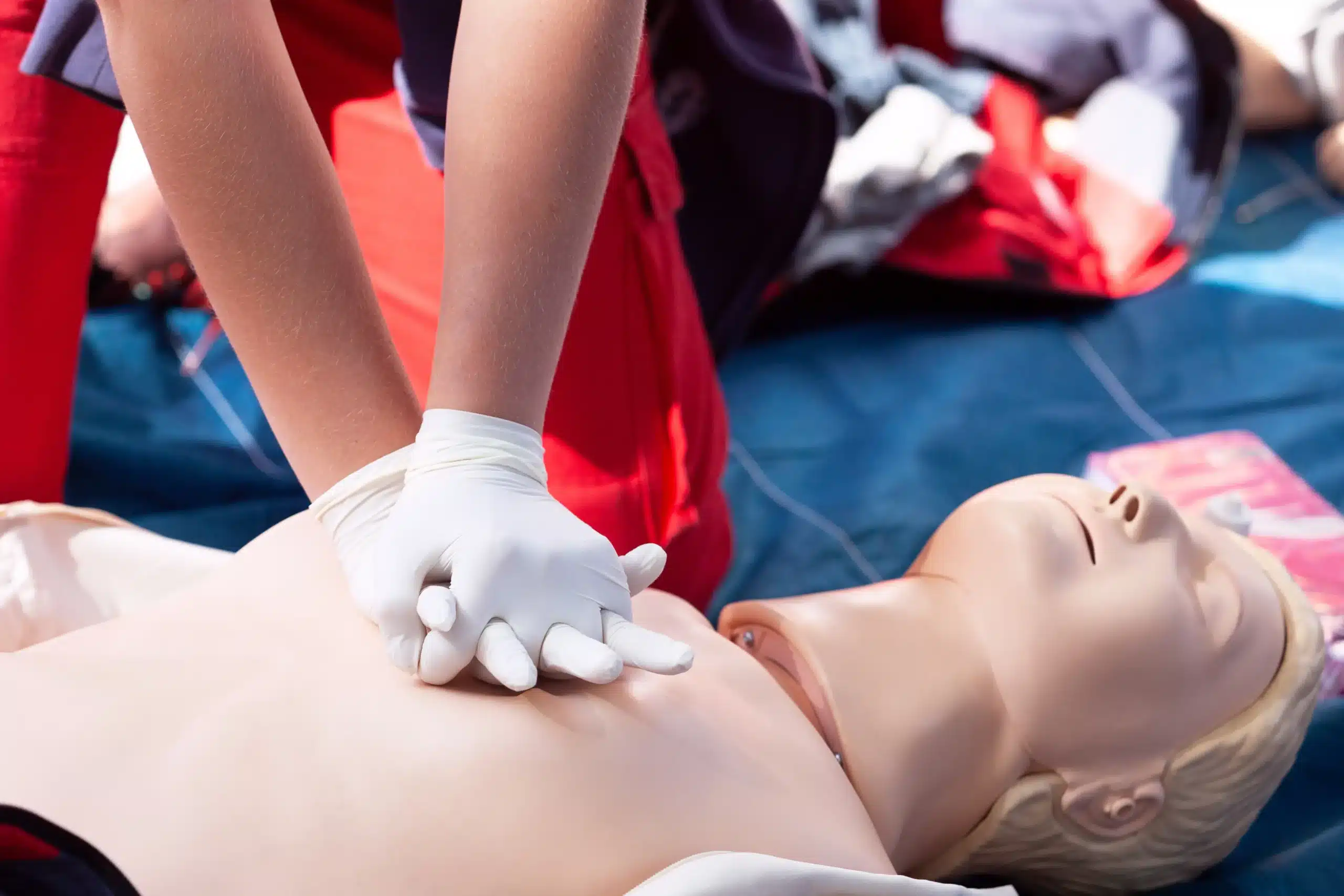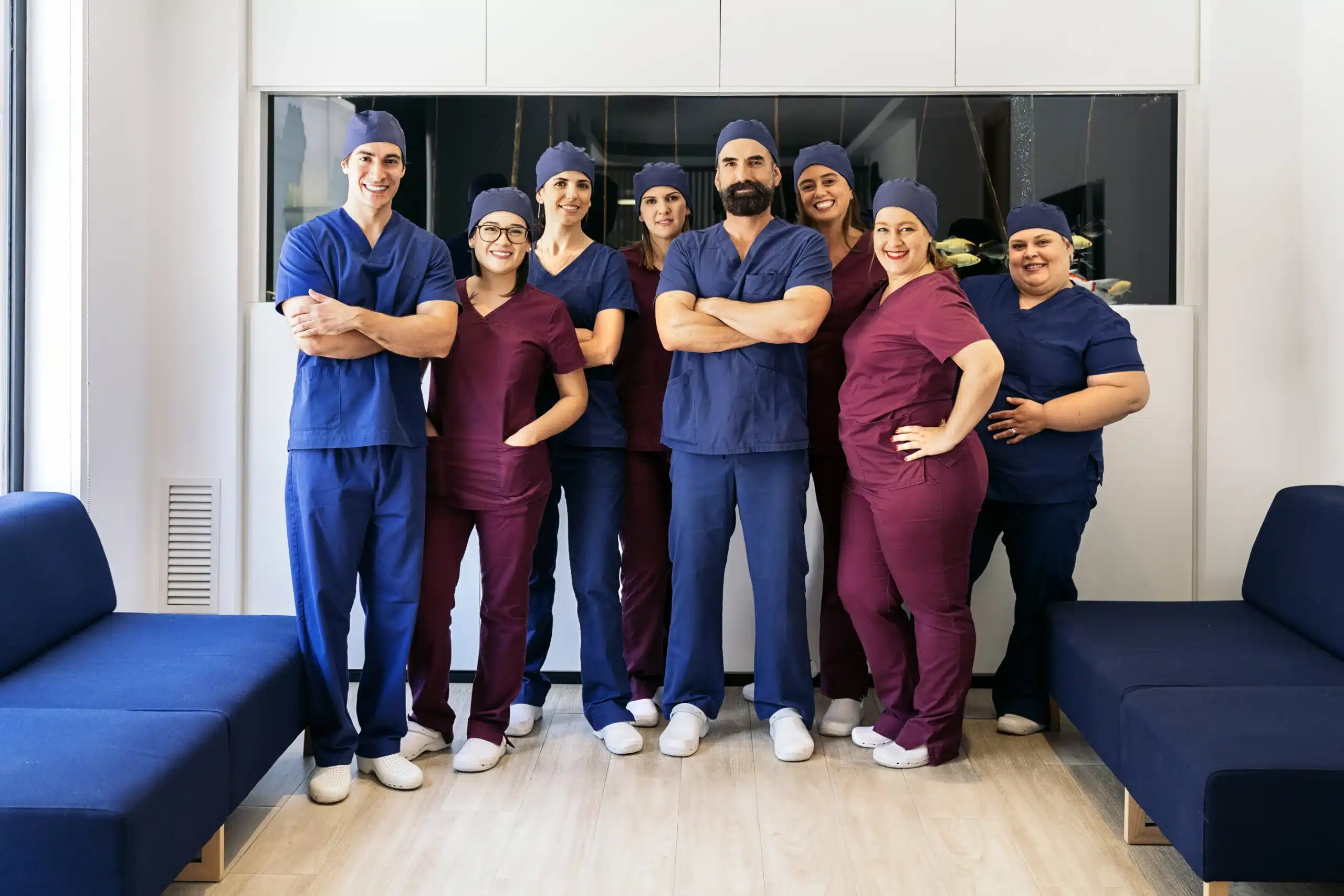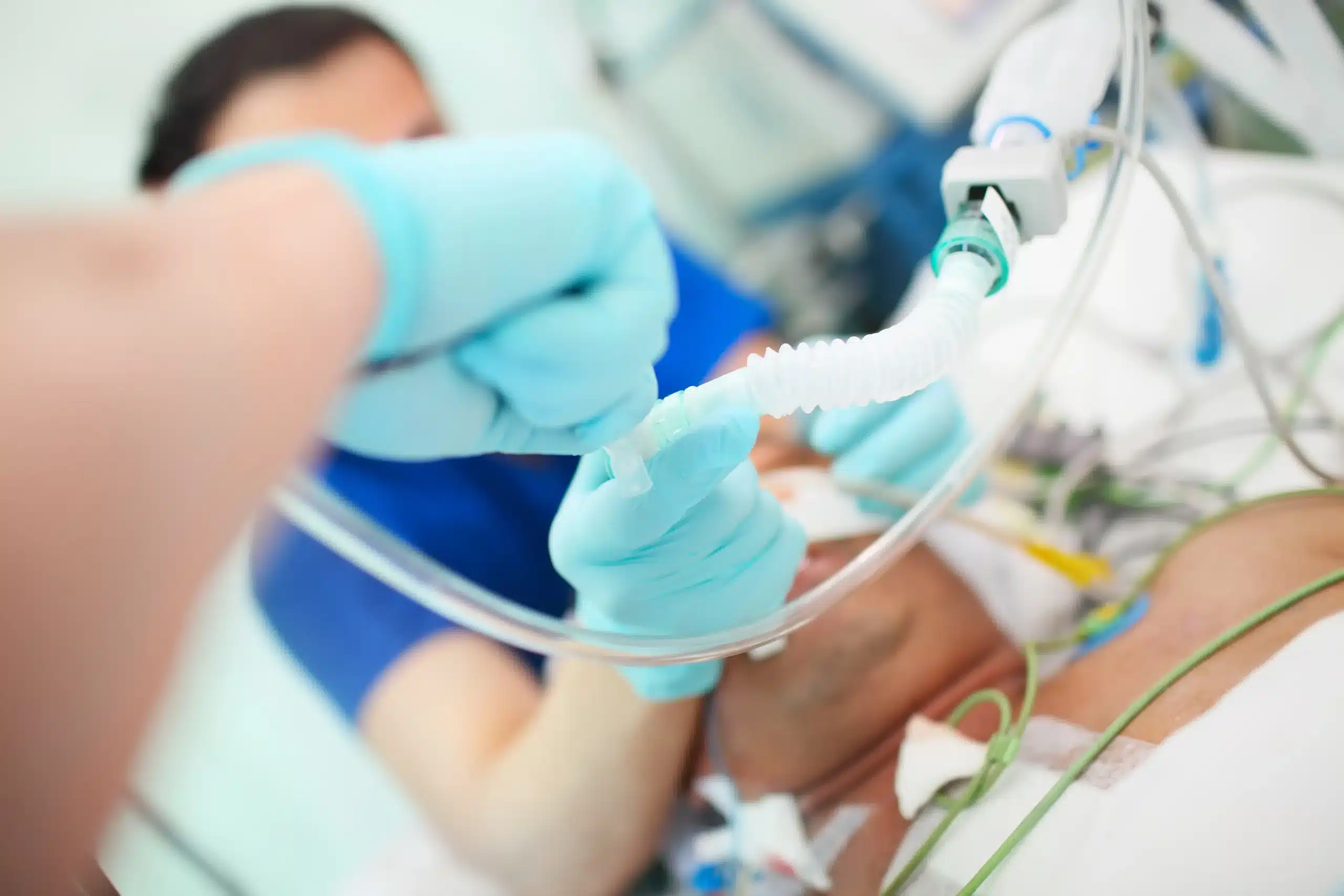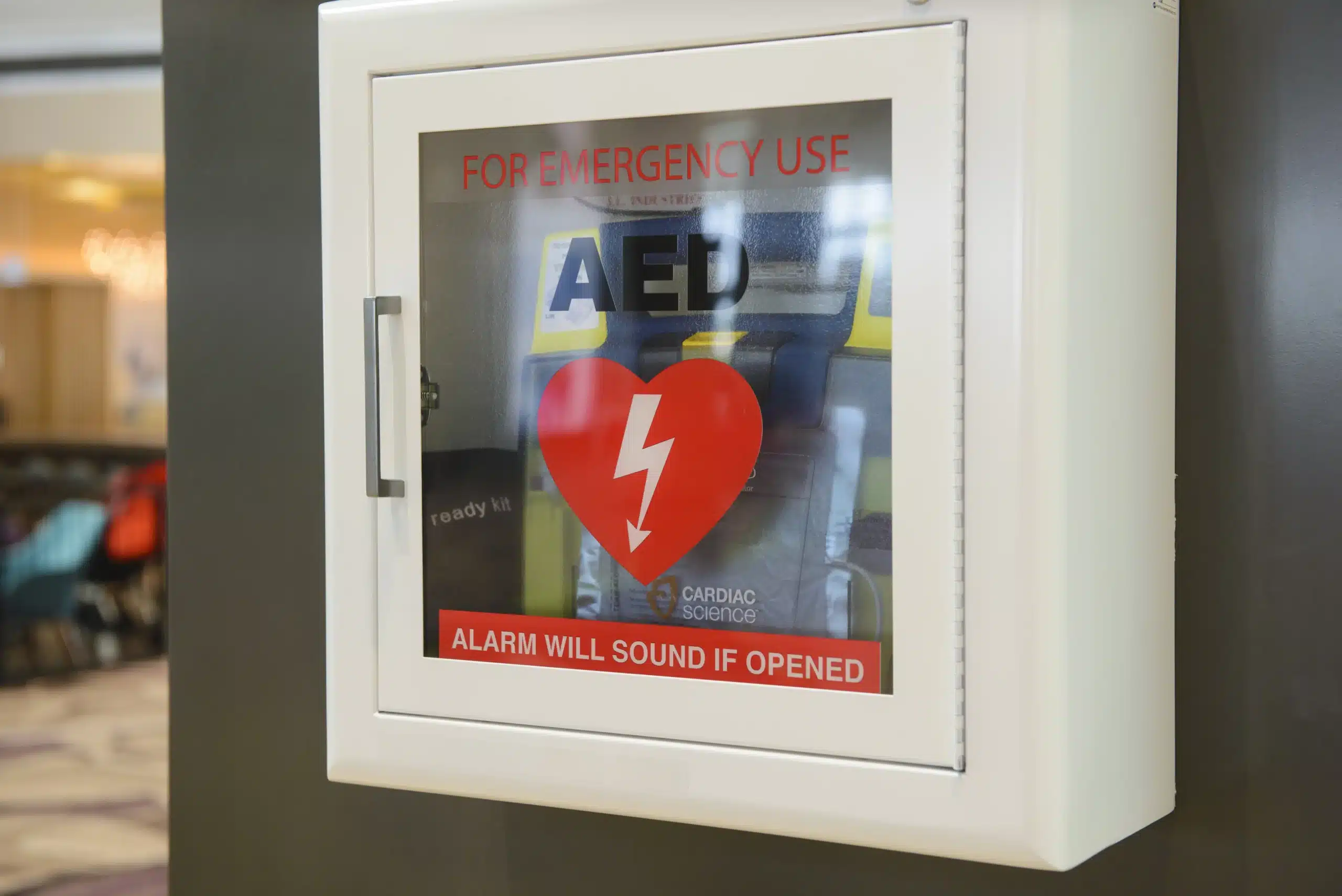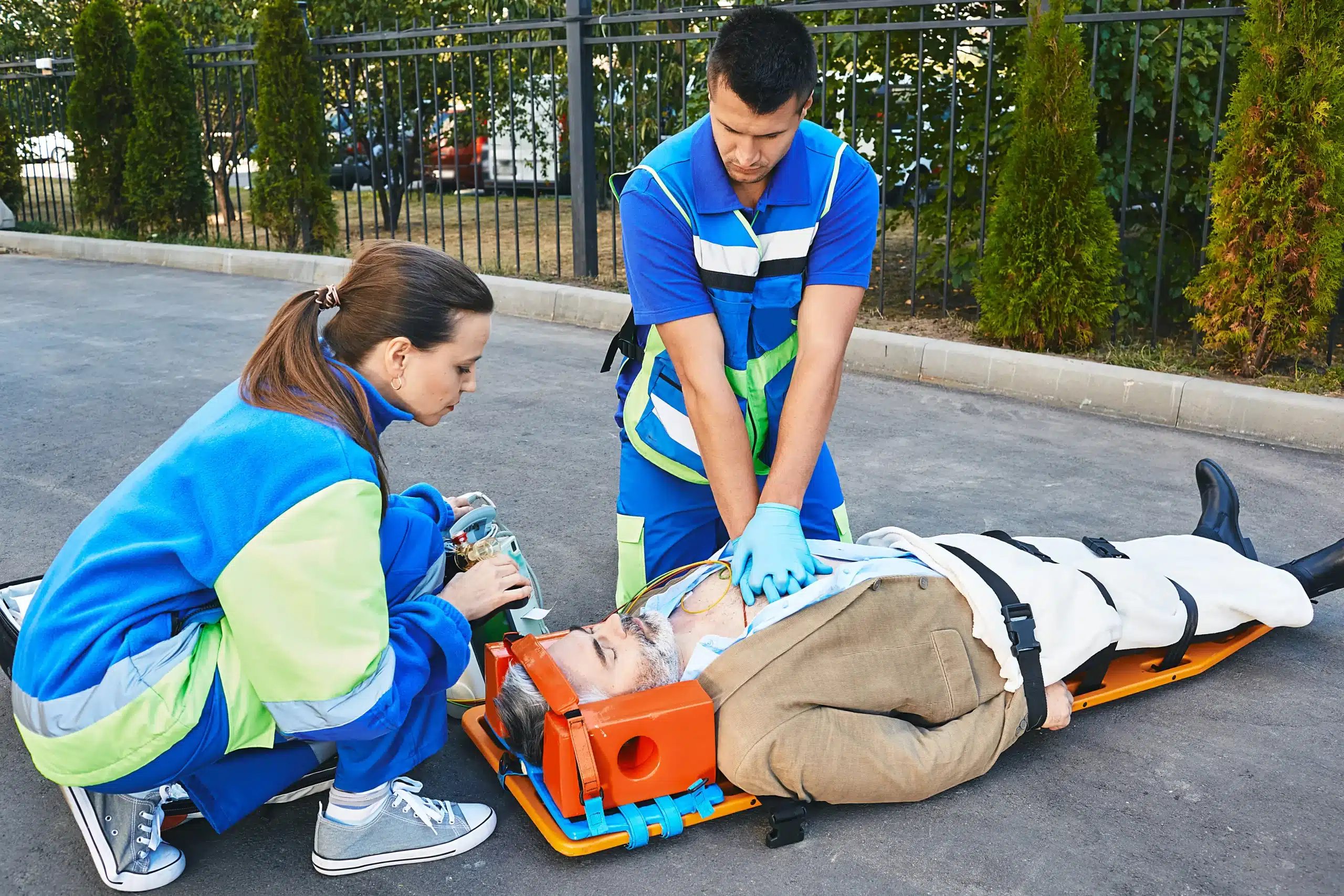Empower yourself with the skills to save a life. CPR certification in San Mateo provides you with the knowledge and confidence to respond effectively during medical emergencies. This guide simplifies the process of finding the right CPR course in San Mateo, covering everything from different certification levels and costs to choosing the right training provider and preparing for your class. We’ll also debunk common CPR myths and address any anxieties you might have about performing CPR. Whether you live in San Mateo, Daly City, or Millbrae, this guide will help you find the perfect CPR certification to meet your needs and empower you to make a difference in your community.
Key Takeaways
- Find the right CPR certification level for your goals: From basic CPR and first aid to advanced certifications like ACLS and PALS, choose the training that aligns with your personal or professional needs. Consider factors like your current role, career aspirations, and desired skill level.
- Select a CPR training provider that meets your needs: Look for experienced, certified instructors, comprehensive course materials, and convenient class schedules and locations. Consider providers like Safety Training Seminars, known for its low price guarantee and excellent customer service.
- Prepare for your CPR class and understand its benefits: Wear comfortable clothing, review basic CPR techniques beforehand, and be ready for some physical activity. Remember, CPR certification empowers you to respond effectively in emergencies, potentially saving lives and strengthening your community.
What is CPR Certification in San Mateo?
CPR certification in San Mateo equips you with the skills to respond to cardiac and breathing emergencies. These programs cover essential life-saving techniques, including chest compressions, rescue breaths, and how to recognize the signs of a cardiac arrest. Several organizations offer these vital courses, ensuring that residents of San Mateo, Daly City, and Millbrae have access to high-quality training. The American Heart Association (AHA) and the American Red Cross are two prominent providers of CPR certification. Their programs adhere to established guidelines and provide comprehensive instruction for various skill levels. For those seeking AHA-aligned training, you can explore options like BLS at Safety Training Seminars.
CPR certification courses in San Mateo cater to both the general public and healthcare professionals. Whether you’re a concerned parent, a teacher, or a medical provider, there’s a course designed to meet your specific needs. These courses emphasize hands-on practice and real-world scenarios to build confidence and competence in performing CPR. For healthcare providers, programs like the AHA’s Resuscitation Quality Improvement (RQI) program offer a flexible and efficient path to maintain certification. Safety Training Seminars offers a variety of CPR and first-aid certification courses in San Mateo, making it convenient to find a class that fits your schedule and learning style. Earning your CPR certification not only prepares you to handle emergencies but also contributes to a safer and more prepared community.
CPR Certification Courses: Which One is Right for You?
Choosing the right CPR certification course depends on your individual needs and career goals. Here’s a breakdown of the different CPR certification levels available in San Mateo:
Basic Life Support (BLS)
The BLS course covers the fundamentals of CPR for adults, children, and infants. You’ll learn to recognize the signs of a cardiac arrest, perform chest compressions and rescue breaths, and use an automated external defibrillator (AED). This course is ideal for healthcare providers, first responders, and anyone seeking a foundational understanding of CPR. It’s also a prerequisite for more advanced certifications like ACLS and PALS.
Advanced Cardiovascular Life Support (ACLS)
ACLS certification builds upon the basics of CPR and covers advanced life-saving techniques for adults. This course addresses topics such as airway management, rhythm recognition, and pharmacology. ACLS certification is essential for physicians, nurses, paramedics, and other healthcare professionals who manage cardiovascular emergencies. The RQI program offers a streamlined approach to maintaining your ACLS certification.
Pediatric Advanced Life Support (PALS)
PALS certification focuses on the specialized skills needed to provide life-saving care to infants and children. Similar to ACLS, this course covers advanced techniques for airway management, rhythm recognition, and medication administration, specifically adapted for pediatric patients. PALS certification is crucial for pediatricians, pediatric nurses, and other healthcare professionals working with children.
First Aid and CPR Combination Courses
Combining CPR and first-aid training offers a comprehensive approach to emergency preparedness. These courses teach you how to respond to various medical situations, from cardiac arrest to minor injuries like cuts and burns. A combined CPR/first-aid certification is valuable for anyone, especially those working in childcare, education, or community settings.
CPR Certification Costs in San Mateo
Knowing the price range for CPR certification in San Mateo helps you budget and find the best value. Several factors influence the final cost, so understanding these will help you make an informed decision.
Factors Affecting Course Prices
CPR course fees aren’t arbitrary. They reflect several key elements that contribute to a high-quality learning experience. Experienced, certified instructors are essential. Their expertise and real-world insights significantly impact how well you grasp the material and develop your skills. Comprehensive course materials, equipment, and resources also play a role. Finally, the type of certification you pursue (BLS, ACLS, PALS, etc.) will affect the overall cost, as each level has varying requirements and complexities. Thoughtful consideration of these factors is key to choosing effective CPR training.
Average Costs by Certification Level
While prices can vary between providers, having a general idea of the average costs for different certification levels is helpful. Basic Life Support (BLS) certification typically falls within a certain price range. More advanced certifications like ACLS (Advanced Cardiovascular Life Support) and PALS (Pediatric Advanced Life Support) usually command higher fees due to their specialized content and longer duration. Combination courses, such as CPR and First Aid, often offer a bundled price that can be more economical than taking each course separately. Safety Training Seminars offers a variety of CPR and First-aid certification courses in San Mateo.
Get the Best Value for Your Money
Finding the right balance between cost and quality is key. Look for providers like Safety Training Seminars, who offer a low price guarantee. This ensures you’re getting competitive pricing without compromising on the quality of instruction. Consider the convenience of class schedules and locations. Safety Training Seminars offers courses in San Mateo and over 60 other cities, with classes available every day of the week. This flexibility makes it easier to fit training into your busy schedule. Finally, don’t overlook the value of excellent customer service. A responsive and supportive training provider can make your entire CPR certification experience smoother and more enjoyable. Consider exploring the various RQI courses available in San Mateo as well.
CPR Certification: Duration, Validity, and Renewal
CPR certification is a valuable skill, but it doesn’t last forever. Understanding the time commitment, the validity of your certification, and the renewal process is essential. This section clarifies these key aspects.
How Long is a CPR Course?
CPR courses are designed to be efficient and manageable. They typically take between two and four hours to complete. The specific length depends on the course format, the level of certification (like BLS or CPR/First Aid), and the training provider. This flexibility allows you to find a course that fits your schedule and learning style. Safety Training Seminars offers a variety of course lengths to meet your needs. Check our CPR and First Aid certification courses for more details.
How Long is CPR Certification Valid?
CPR certifications are typically valid for two years. This timeframe ensures that individuals maintain current knowledge and skills, as guidelines and best practices can change. Maintaining a current certification shows your commitment to providing effective assistance during emergencies. Mark your calendar to track your certification’s expiration date so you can renew it on time.
Renew Your CPR Certification
Before your CPR certification expires, you’ll need to take a renewal course. Renewal courses are shorter than initial certification courses and focus on refreshing essential skills and covering any updates to CPR guidelines. This ensures you remain prepared and confident in responding effectively during an emergency. Safety Training Seminars offers streamlined renewal courses to make the process convenient. Don’t let your skills lapse—stay current and prepared.
Choose Your CPR Course Format
CPR courses in San Mateo come in several formats, making it easy to find one that suits your schedule and learning style. Let’s explore the differences between in-person, online, and hybrid learning.
In-Person Training: Hands-On Learning
In-person CPR training provides hands-on learning in San Mateo. A certified instructor guides you through each technique, offering real-time feedback and support. This format is great for people who thrive in interactive environments and benefit from direct practice. In-person classes typically include hands-on skill sessions and result in a two-year certification that meets OSHA requirements. The American Heart Association CPR and First Aid classes in San Mateo are designed for various participants, from healthcare professionals to community members.
Online Courses: Learn at Your Own Pace
Online CPR courses offer flexibility and convenience. Learn at your own speed, reviewing sections as needed. This format is perfect for busy individuals or those who prefer self-directed learning. While online CPR certification is generally accepted, some organizations or employers might require a hands-on skills component. For example, some California school districts may require teachers to demonstrate their skills in person, even with an online certification.
Hybrid Courses: Blend Online and In-Person Learning
Hybrid CPR courses combine online learning with in-person skills practice. You’ll cover the course material online, learning the theory and procedures at your own pace. Then, you’ll attend an in-person session to practice techniques and receive instructor feedback. This format balances flexibility with hands-on training. Programs like the RQI program use this blended approach, allowing you to study online and demonstrate your skills in person.
Accredited CPR Training Providers in San Mateo
Finding the right CPR training provider is crucial for a high-quality learning experience. San Mateo offers a variety of options, from nationally recognized organizations to local providers. Here’s a rundown to help you find the best fit.
Safety Training Seminars
Safety Training Seminars, a woman-owned AHA Training Center, offers a comprehensive range of courses, including BLS, ACLS, PALS, CPR, and First Aid. They prioritize customer service and offer a low price guarantee, making them a popular choice. Conveniently located in San Mateo, they serve surrounding communities like Daly City and Millbrae, with classes offered seven days a week. Explore their BLS, ACLS, and CPR/First Aid courses for more information. For healthcare professionals, they also provide the RQI program for streamlined certification maintenance.
American Heart Association (AHA) Certified Centers
The AHA sets the standard for resuscitation training. Many hospitals and healthcare organizations in San Mateo offer AHA-certified courses, including the RQI program for efficient BLS, ACLS, and PALS recertification. This flexible program allows healthcare providers to train at their own pace and maintain their skills.
Red Cross Training Locations
The American Red Cross is another well-regarded CPR training provider. While not located directly in San Mateo, they offer classes in nearby Burlingame, providing both in-person and blended learning options. Each course leads to a two-year certification.
Other Recognized Local Providers
San Mateo has several other local CPR and first-aid training providers. Browse sites like Yelp to find various options, including providers like LifeSaver CPR, Rescue with CPR, and Cascade Training Center. These local options offer diverse course formats and schedules.
Choosing a CPR Provider: What to Look For
Finding the right CPR class is about more than just ticking a box. It’s about gaining the confidence and skills to potentially save a life. Here’s what to consider when choosing a CPR provider:
Instructor Qualifications and Experience
Experienced, certified instructors make a huge difference in your learning experience. Look for providers whose instructors have extensive real-world experience and strong teaching skills. A knowledgeable instructor can answer your questions thoroughly and provide personalized feedback to help you master the techniques. This hands-on expertise can be invaluable as you build your confidence and competence. Quest Safety Training emphasizes the importance of experienced instructors in their CPR and First Aid training courses.
Course Materials and Resources
High-quality course materials are essential for effective learning. Look for providers who offer comprehensive resources, including updated manuals, interactive training tools, and realistic practice scenarios. StatCert discusses the critical characteristics of effective CPR training programs. A variety of teaching methods ensures you grasp the information effectively and retain it long after the course ends.
Class Schedules and Locations
Convenience is key when fitting a CPR class into your busy schedule. Look for a provider that offers a range of class times and convenient locations. Safety Training Seminars offers courses seven days a week in San Mateo and surrounding areas. Whether you prefer weekday evenings, weekends, or daytime classes, finding a schedule that works for you makes it much easier to commit to training. A local provider with classes in your area can save you valuable travel time.
Student Reviews and Testimonials
Reading reviews from past students can give you valuable insights into a CPR provider’s strengths and weaknesses. Check online platforms like Yelp to see what others have to say about their experiences. Positive reviews often highlight instructors who are engaging, supportive, and create a positive learning environment. This feedback can help you choose a provider that aligns with your learning preferences and ensures a rewarding training experience.
Get Ready for Your CPR Course
So, you’ve signed up for a CPR class—congratulations! You’re taking a proactive step to learn life-saving skills. To make the most of your training, here’s how to prepare for your upcoming course:
What to Bring and Wear
CPR courses are hands-on. You’ll be practicing techniques like chest compressions and rescue breaths, so wear comfortable clothing that allows you to move freely. Think athletic wear or loose-fitting clothes. You won’t need to bring anything specific to most CPR certification courses, as all necessary materials are usually provided.
Pre-Course Study Materials
While pre-course studying isn’t usually required, familiarizing yourself with the basics of CPR can boost your confidence and make the in-class portion more effective. A quick review of CPR techniques and guidelines beforehand can give you a head start.
Physical Requirements
Be prepared for some physical activity during your training. You’ll be actively practicing skills like chest compressions, which can require some exertion. Being physically ready will help you perform CPR effectively and build confidence for real-life scenarios. If you have any concerns about the physical demands of the course, contact your chosen CPR training provider to discuss accommodations.
Why Get CPR Certified?
CPR certification empowers you to handle emergencies, advance your career, and contribute to a safer community. It’s a valuable skill that can make a real difference.
Be Prepared for Emergencies
Emergencies can happen anytime, anywhere. CPR training equips you with the knowledge and skills to respond effectively in various critical situations. From a choking incident at a restaurant to a sudden cardiac arrest at home, having CPR certification can mean the difference between life and death. You’ll gain the confidence to act quickly and provide assistance until professional help arrives.
Advance Your Career
Many professions, especially in healthcare, require or prefer candidates with CPR certification. BLS Provider courses are essential for healthcare professionals, teaching them CPR and other lifesaving skills applicable in various settings. Even outside of healthcare, CPR certification strengthens your resume, demonstrating your commitment to safety and preparedness. The RQI program offered by the American Heart Association is a popular, efficient way for medical professionals to maintain their BLS, ACLS, and PALS certifications.
Make Your Community Safer
Becoming CPR certified makes your community a safer place. You’ll be prepared to assist family, friends, neighbors, and even strangers during emergencies. CPR and First-Aid training empowers individuals to respond effectively, creating a network of trained responders. Understanding and addressing common CPR myths builds confidence and equips you to act decisively when it matters most.
CPR Certification: Common Questions and Concerns
It’s normal to have questions and concerns about CPR certification, especially if you’re new to it. This section addresses some common worries and helps you feel confident about learning this life-saving skill.
Overcome Your Fears About Practical Skills
Many people hesitate to learn CPR because they’re afraid of making mistakes and potentially causing further injury. Some are also uncomfortable with the idea of mouth-to-mouth resuscitation. These are valid concerns, but they shouldn’t stop you from getting trained. CPR instructors understand these anxieties and create a supportive learning environment. They guide you through each step, provide ample practice time on mannequins, and offer personalized feedback to build your confidence. Remember, any attempt at CPR is better than none, and the skills you learn can significantly impact someone’s chances of survival. It’s a misconception that proper CPR training is difficult, and it shouldn’t hold you back from learning this essential skill. Learn more about common CPR myths.
Make Time for Training
One of the most common reasons people postpone CPR training is feeling they lack the time. However, finding time for a CPR class is easier than you think. Safety Training Seminars offers courses daily in San Mateo, making it flexible enough to fit into even the busiest schedules. These courses cater to various groups, from healthcare providers to the general public, so you’ll learn alongside people with similar needs and interests.
Understand Good Samaritan Laws
Another concern revolves around legal liability when performing CPR. Rest assured, Good Samaritan laws protect those who help in emergencies. You don’t need formal certification to perform CPR, but a CPR course ensures you’re properly trained and prepared to handle such situations effectively. Understanding these laws and having the right training can empower you to act confidently in a crisis. Learn more about Good Samaritan Laws and CPR.
Related Articles
- RQI Classes in San Mateo, CA – San Mateo CPR Classes
- CPR & First-aid Classes in San Mateo, CA – San Mateo CPR Classes
- BLS CPR Classes in San Mateo, CA – San Mateo CPR Classes
- AHA ACLS Classes in San Mateo, CA – San Mateo CPR Classes
- Northern CA CPR Directory – San Mateo CPR Classes
Frequently Asked Questions
What’s the difference between BLS, ACLS, and PALS? BLS (Basic Life Support) teaches fundamental CPR skills for everyone. ACLS (Advanced Cardiovascular Life Support) is for healthcare professionals managing cardiac emergencies in adults. PALS (Pediatric Advanced Life Support) focuses on advanced life-saving techniques for infants and children. Think of BLS as the foundation, while ACLS and PALS build upon those basics for specialized care.
How much does CPR certification cost in San Mateo? The cost varies depending on the course type and provider. BLS courses are generally the most affordable, while ACLS and PALS certifications tend to be more expensive due to their advanced nature. Look for providers like Safety Training Seminars who offer a low price guarantee to ensure you’re getting a good value.
How long does CPR certification last, and how do I renew it? CPR certification is typically valid for two years. To renew, you’ll need to take a recertification course before your current certification expires. These renewal courses are usually shorter than the initial certification and focus on refreshing your skills and knowledge.
What are the different CPR course formats available? CPR courses are offered in various formats: in-person, online, and hybrid. In-person classes provide hands-on training with an instructor. Online courses offer flexibility for self-paced learning. Hybrid courses combine online learning with in-person skills practice. Choose the format that best suits your learning style and schedule.
How can I find a reputable CPR training provider in San Mateo? Look for providers like Safety Training Seminars, an AHA Training Center, offering various courses and a low price guarantee. The American Heart Association and the American Red Cross also offer certified courses in the area. When choosing a provider, consider instructor qualifications, course materials, class schedules, and student reviews.
This article was written for free by MEGA SEO.
